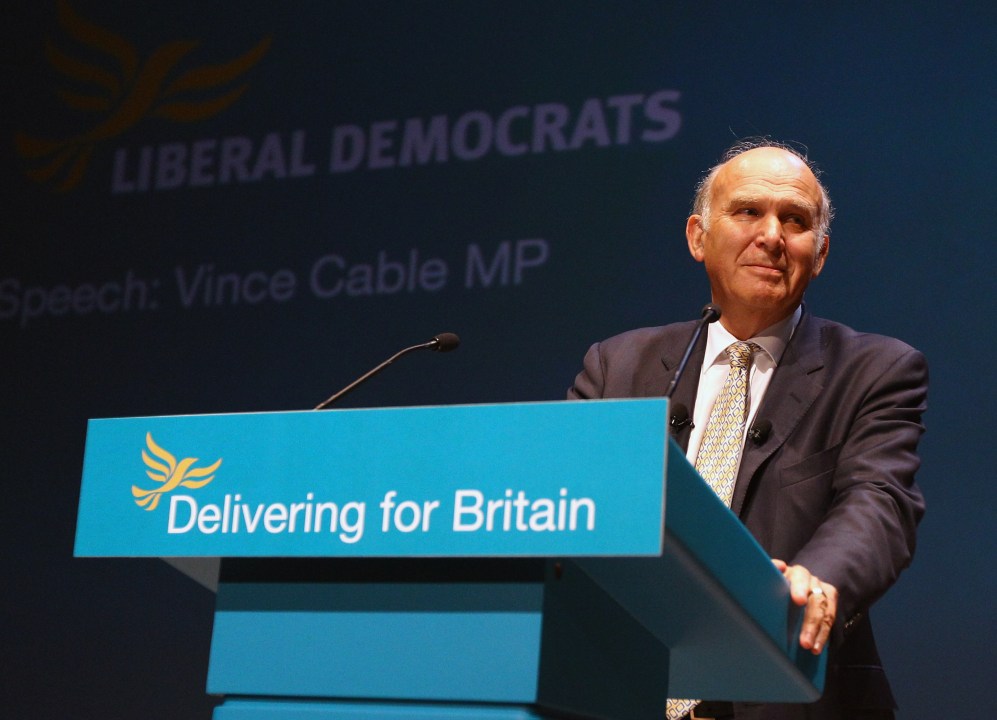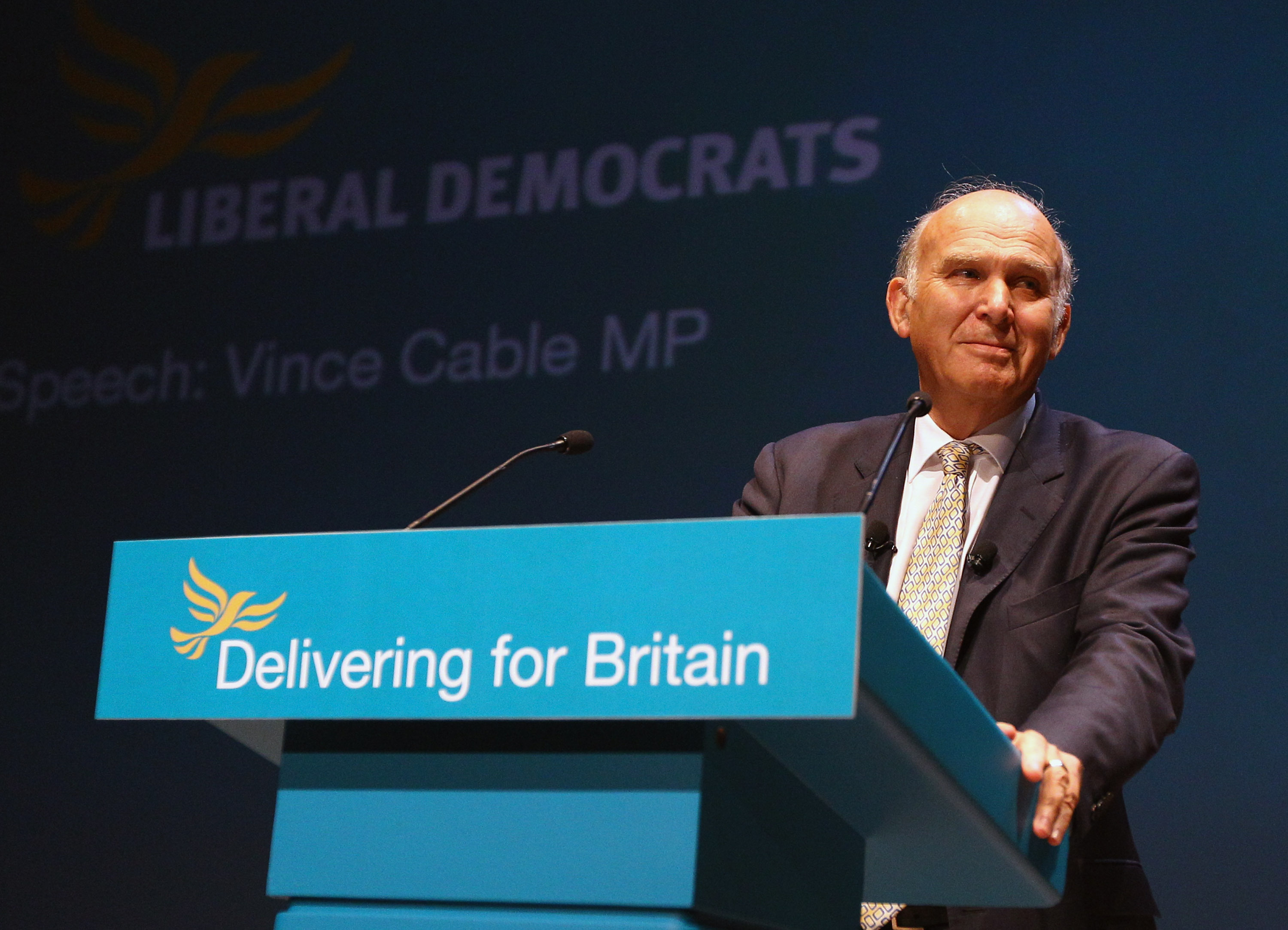 What are we to make of the fact that No.10 gave the thumbs-up to Vince Cable’s
bizarre anti-capitalist rhetoric today? “Capitalism takes no prisoners and it kills competition where it can,” he fumed – and you can argue that, technically, he is paraphrasing
Adam Smith. But he has been in politics long enough to know what signal his speech sent out (and the
reaction it would trigger). Mood music counts for a lot in politics, and in business. And the mood music from this government sounds like a bunch of politicians happy to tax the bejesus out of
the high-paid – regarding them as ATM machines to be raided, rather than wealth creators to be welcomed. It’s time to ask what harm all this posturing is doing.
What are we to make of the fact that No.10 gave the thumbs-up to Vince Cable’s
bizarre anti-capitalist rhetoric today? “Capitalism takes no prisoners and it kills competition where it can,” he fumed – and you can argue that, technically, he is paraphrasing
Adam Smith. But he has been in politics long enough to know what signal his speech sent out (and the
reaction it would trigger). Mood music counts for a lot in politics, and in business. And the mood music from this government sounds like a bunch of politicians happy to tax the bejesus out of
the high-paid – regarding them as ATM machines to be raided, rather than wealth creators to be welcomed. It’s time to ask what harm all this posturing is doing.
There was a line in Clegg’s speech on Monday that, at the time, I
dismissed as playing to the gallery. But in the light of Comrade Cable’s attacks, it’s worth looking at again:
How is “dodging” taxes stealing money from neighbours? Does Clegg really struggle to differentiate between failing to hand over money you have earned, and wrongly claiming money someone else has earned? It is only “stealing” if you take the view that the money earned belongs to the government in the first place.“We all read the headlines about benefit fraud. We all agree it’s wrong when people help themselves to benefits they shouldn’t get. But when the richest people in the country dodge their tax bills that is just as bad. Both come down to stealing money from your neighbours.”
Eerily, this is precisely what the taxman proposed last week – that it might take all salaries, and refund what it chose to the workers. As Jill Kirby, my colleague at the CPS, said:
You can argue – as James did earlier – that this is part of a clever political strategy to keep public opinion on board for the cuts. That people will only accept pain if they think the rich are being stung too – and that one cannot reverse the deep eat-the-rich sentiment out there, so the smart thing to do is play along with it. Let’s say this is true, for the sake of argument. That doesn’t make it any less appealing for a young Goldman Sachs banker to come to Britain and pay tax here. HSBC is currently trying to make Michael Geoghegan its chairman – but he’s Hong Kong based and won’t come to London. You may say: good, we don’t like bankers. But we do like, and need, their money. It makes no difference to them if they’re being hounded and taxed by Labour, for ideological reasons, or by the Tories, for reasons of political positioning.“The power grab implicit in the latest HMRC proposals – currently under consultation – to receive all salaries direct from employers, process all deductions and then hand to us what remains, should worry anyone who values freedom.”
As we say in The Spectator’s leader column tomorrow, ideas matter. This government should be standing up for capitalism – as Cameron did so eloquently in his 2008 speech. So why allow his ministers to give off such strong anti-business vibes now?
Clegg has quickly come to see the point of spending cuts and welfare reform, and I think he can come to see the sense in dropping his juvenile eat-the-rich rhetoric too. He talks as if the rich pay no tax at all. But look at Table 2.4 of HMRC data, bottom right column (pdf). The richest 1 percent actually pay 25 percent of all income tax collected. Surely this is a ratio to warm the heart of the most ardent redistributionist? Britain’s tax history shows that richest shoulder a greater burden now than ever before – and that’s because Nigel Lawson cut the top rate of tax in 1998 (historical data here).
The richest 1 percent went from paying 14 percent to 25 percent of UK income tax as the top rate fell and the Thatcher, Major and Blair governments were careful not to even hint that they would try to squeeze the rich until the pips squeak. All knew that a liberal approach – a low rate, and welcoming language – was the best way to attract money into Britain. Cable’s banker-bashing, Osborne’s 50p tax and Clegg’s obsession with supposed tax-evaders all gives the impression of a government that has decided to play to – rather than challenge – populist rhetoric.
It may well be that Steve Hilton thinks this anti-capitalist rhetoric is cleverly counter-intuitive and good for the brand, making him happy to approve these Lib Dem speeches. But I fear he underestimates just how important it is that all government ministers, especially the business secretary, defend capitalism. Mood music matters. And careless talk costs jobs.








Comments